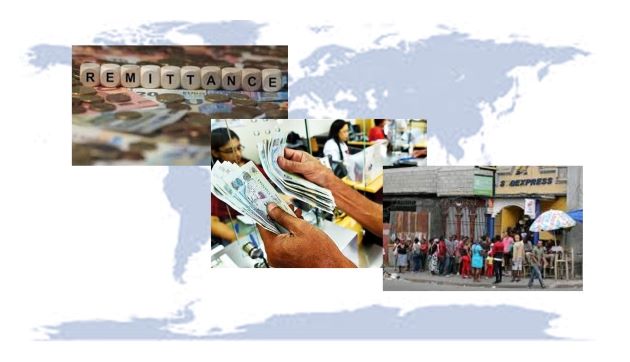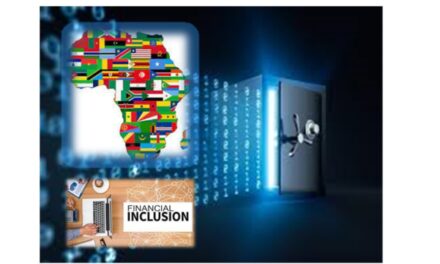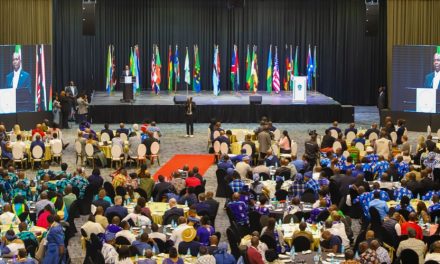The G20 group of countries have made enhancing cross border payments a priority during the Saudi Arabian Presidency. Faster, cheaper, more transparent and more inclusive cross-border payment services, including remittances, while maintaining their safety and security would have widespread benefits for citizens and economies worldwide.
The global remittance market, valued at $689 billion in 2018, is projected to reach $930 billion by 2026, driven by the entry of new fintech payment service providers.
While Remittance Service Providers (RSPs) race to create the fastest, easiest method to transfer remittances, a number of challenges have been identified, namely high costs, low speed, limited access and insufficient transparency especially in emerging markets and developing economies in the Asia, Africa and Latin America and the Caribbean.
To address these challenges the G20 has tasked the Financial Stability Board (FSB) to develop an action plan involving a wide range of stakeholders, including the international organizations and private sector entities. To achieve the goals set up in the roadmap a close collaboration between the public sector and the private sector is essential.
Join us on October 7th, 2021 at 08.00 Eastern Standard Time (EST) US to learn about:
- The World Bank’s contribution to the FSBs plan to enhance the current cross-border payments ecosystem by fostering better alignment and cross-border recognition of identity requirements and improving the coverage, access, quality, and digital capabilities of official ID databases for individuals and legal entities
- The general landscape of the digital ID/eKYC offerings in different countries especially the challenges seen in developing economies
- The push for partnerships between the public and private sectors to standardize service level agreements
- How fostering KYC and identity information sharing can improve the remittance experience for end-users
Moderator and Host
 Neil Munroe, Deputy Managing Director, BIIA and Deputy Chair, International Committee on Credit Reporting (ICCR)
Neil Munroe, Deputy Managing Director, BIIA and Deputy Chair, International Committee on Credit Reporting (ICCR)
Neil has 35 years of experience in the financial services and credit reporting industries. He is currently Deputy Managing Director of the Business Information Industry Association (BIIA), which is registered in Hong Kong and whose membership consists of over 70 information companies.
Neil is also a founding member of the International Committee on Credit Reporting (ICCR) that is hosted by the World Bank and was personally involved in the creation of the World Bank Principles of Credit Reporting, the recognized standards for the industry. He was elected Deputy Chair in November 2019.
Speakers
 Fredesvinda Montes, Senior Financial Sector Specialist, World Bank Group
Fredesvinda Montes, Senior Financial Sector Specialist, World Bank Group
Fredes Montes, a Spanish National, is Senior Financial Specialist at the World Bank’s Payment System Development Group. She joined the World Bank in 2007 as a financial infrastructure specialist and since then has supported policy reforms in more than 40 projects worldwide involving the development or enhancement of financial infrastructure, financial consumer protection, digital identification, data protection, privacy and cybersecurity.
Fredes also served as Lead Secretariat to the International Committee on Credit Reporting (ICCR) since its inception in 2009 till January 2018 and currently co-chairs the Financial Inclusion Global Initiative (FIGI) working group on Cybersecurity for Financial Infrastructure and the FIGI working group on Digital Identity. In 2016, she co-authored the book “Responsible Finance and Credit Reporting Systems” which focuses on the links between insolvency and credit information.
 Francesco Di Salvo, Senior Financial Sector Specialist, World Bank Group
Francesco Di Salvo, Senior Financial Sector Specialist, World Bank Group
Francesco Di Salvo is a Senior Financial Sector Specialist at the World Bank’s Payment System Development Group. He joined the World Bank in 2020. He performs technical assistance to governments and central banks. The assistance is aimed to support policy reforms and implementations on a series of thematic areas related to the financial systems: regulatory and policy frameworks, payment systems development, innovation, digital identity, financial inclusion, government payments, and international remittances.
Previously, Francesco held several roles within Mastercard, the last being director of product management for the Data & Services unit. Moreover, he served for three years as a market infrastructure expert at the European Central Bank.
 Gus Tomlinson, General Manager of Identity Fraud, GBG
Gus Tomlinson, General Manager of Identity Fraud, GBG
Gus has been with GBG for five years, with a key focus on outlining and delivering strategies to ensure the group driving its products forward in key markets. As General Manager of Identity Fraud, Gus has a deep understanding of GBG’s Identity and Fraud portfolio and the Onboarding and Authentication markets globally.
Gus is passionate about how data and technology can enable safe commerce online, particularly at how organizations should strive to combine technology to ensure that every identity has an equal and fair access to goods and services.
 David Francis, Data Partner Manager, Global Data Consortium
David Francis, Data Partner Manager, Global Data Consortium
David Francis is the Data Partner Manager at the Global Data Consortium. He was the founder and CEO of Ozanam Strategic Insights, which he established in 2018. From 2014 to 2017, he was a senior reporter at Foreign Policy where he covered international economics and trade. A winner of numerous awards and fellowships, Francis has reported on militant movements in Nigeria, Islamic terrorism in Kenya, European politics from Berlin, the war on drugs in Mexico and the war in Afghanistan.
His work has appeared in Slate, the Christian Science Monitor, Financial Times Germany, Sports Illustrated and the Atlantic, among other outlets. He is also an adjunct professor at the University of North Carolina at Chapel Hill. Francis lives in Chapel Hill with his wife and daughter.
To register to attend the webinar please click here



























